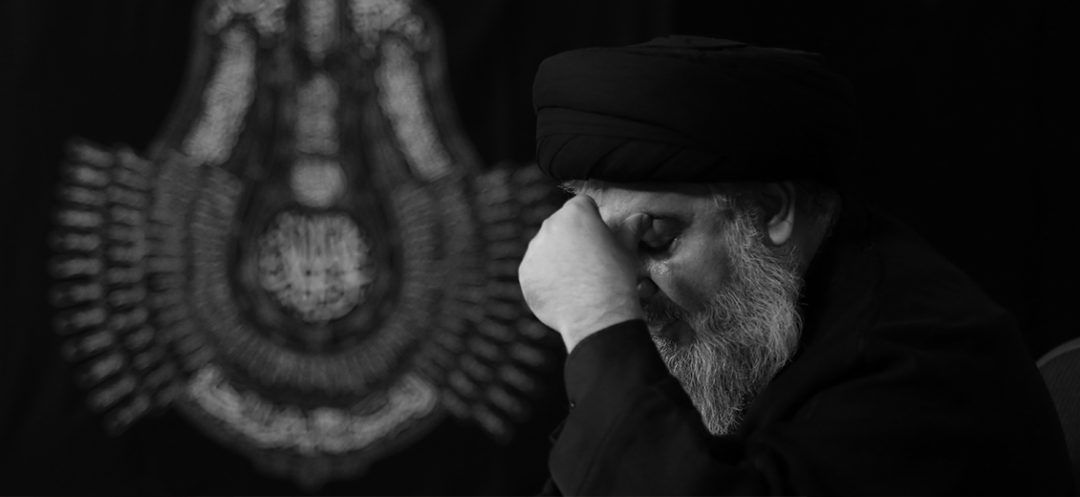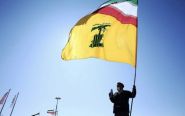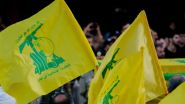
The lack of clear information surrounding the death of Hezbollah leader Hassan Nasrallah has ignited widespread speculation. With no public funeral or confirmed burial, many question whether Nasrallah is truly dead or severely injured.
According to Islamic tradition, burial typically occurs within 24 hours of death. Hezbollah's silence only deepens the mystery. A figure of such stature, even beyond his supporters, seems deserving of a proper funeral. Or could Israel be preventing it?
Equally perplexing is the absence of Hashem Safieddine, Nasrallah’s widely recognized successor. If Nasrallah has indeed been killed, why hasn't Safieddine been officially appointed? Could it be a security concern? Whether he’s first or second in command, Safieddine remains a target. The delay raises questions about Hezbollah’s internal structure and its preparedness for leadership transition.
Similarly, the recent video statement from Naim Qassem, Hezbollah’s Deputy Secretary-General, has also raised eyebrows. In the video, his body language appears off—he’s sweating profusely, looking visibly uncomfortable, and, notably, there’s no Hezbollah flag behind him, which is unusual for official communications. This odd display has led to speculation about the true state of Hezbollah’s leadership amid ongoing military operations.
Adding to the uncertainty, questions remain about who is commanding Hezbollah’s military operations in the South. Is the Revolutionary Guard stepping in to fill the leadership vacuum, or is Hezbollah still able to manage its military arm independently? How can they operate with most of their senior leaders assassinated? How are they coordinating or communicating in the field after the scandalous security breach in their communication network? These unanswered questions raise broader concerns about the future of Hezbollah, the group's stability, and its capacity to sustain its military presence in Lebanon.
On the night of October 1, 2024, Tel Aviv was engulfed in chaos. The serene, quiet hum of the city was shattered by the deafening roar of ballistic missiles fired from Iran, hundreds of them streaking through the dark like burning comets. The piercing wails of air raid sirens echoed in the streets, signaling an unprecedented assault. While many missiles were intercepted, the ones that broke through sent shockwaves across neighborhoods, plunging parts of the city into darkness, disrupting power grids, and rattling the core of Israeli security.
This wasn’t just an attack on infrastructure; it was an assault on the collective psyche of a nation already on edge. The destruction was tangible—shattered windows, crumbled walls—but the emotional toll was far worse. Families huddled in bomb shelters, fearful of what might come next.
Iran’s bold move to launch these attacks seemed almost suicidal, a desperate lashing out after the assassination of Hezbollah’s leader, Hassan Nasrallah. Tehran's decision to escalate the conflict, even as its economy crumbles and its proxy militias falter, might be an act of desperation. Supreme Leader Ali Khamenei's regime faces enormous internal pressure, with dissent brewing at home and international isolation intensifying—did the US deceive Iran with promises of a new fixed nuclear agreement? What are the Guarantees after the US elections? Regardless of whether Trump or Harris wins in November, the Middle East policy will remain largely the same, though each will likely take a different approach.
President Pezeshkian’s recent speech at the United Nations hinted at something deeper—a shift in Iran's geopolitical strategy. Could this aggression be a final, desperate act before seeking a nuclear deal that distances Tehran from its long-standing militant alliances? The missiles lighting up Tel Aviv's skies might be signaling not just a battle but the twilight of an era for Iran’s regime.
The attack, however, might not play out favorably for the Iranian regime. This attack seems like a pretext for Netanyahu to involve the US in a confrontation with Iran’s religious regime. It shows a contradictory approach between the President’s strategy and Khamenei's IRGC. It appears there’s a rogue element at play, and the attack could be perceived as an attempt to regain Hezbollah’s support base, especially amidst growing feelings of abandonment.
In reality, Iran has no option but to find a way out of this siege and try to rebuild a strong economy and a secure state within the proposed conditions. Internally, the economic crisis, coupled with growing dissatisfaction among the populace and the fallout from the regime's brutal crackdown on dissent, has weakened Khamenei’s grip on power. Externally, Iran's missile attack could backfire, prompting harsher sanctions and military responses from both Israel and its Western allies. If this conflict escalates further, it could mark a turning point for the Iranian regime, potentially leading to its downfall.
It seems that President Pezeshkian understands the toll that needs to be paid to build a better future for his country.
Could this be the beginning of the end for the Khamenei Regime?
Reports indicate that Hezbollah, once considered one of Iran’s most successful proxy militias, has suffered significant setbacks, largely due to a severe internal security breach. Numerous Hezbollah spies have reportedly collaborated with Israel’s Mossad, giving away critical intelligence that led to the elimination of key leaders and the destruction of vital weapons caches. Israel’s use of advanced technologies, including AI and digital surveillance, has exposed the militant group’s vulnerabilities. The bombings of Hezbollah’s arsenals in Bekaa, Baalbek, and the southern region, combined with the assassination of Hassan Nasrallah and other top commanders, have thrown Hezbollah into disarray.
After the Nasrallah strike, two regional officials briefed by Tehran told Reuters that Khamenei was transferred to a secure location inside the country. Is Khamenei feeling threatened internally? Is the attack on Tel Aviv a calculated move, or was it instigated by rogue IRGC commanders?
Iranian Revolutionary Guards (IRGC) have come under suspicion, with reports suggesting that some members may be acting as double agents. This represents an unprecedented security breach in Iran's military apparatus. The betrayal by both Hezbollah insiders and IRGC members has fueled speculation that Iran is deliberately abandoning these militant groups to secure a new nuclear deal with the international community. It seems that the death of former Iranian President Ebrahim Raisi and his foreign minister in a helicopter accident, followed by the assassination of Hamas leader Ismail Haniyeh on the inauguration day of Iran's new president, Pezeshkian, adds further intrigue to this shifting political landscape.
During his address at the United Nations, President Pezeshkian hinted at significant changes in Iran’s foreign policy, emphasizing diplomacy over military confrontation. His statements suggested that Tehran is more interested in securing its national interests and stabilizing the region, possibly at the expense of its proxy militias. Pezeshkian's speech has been interpreted as a signal that Iran may no longer be willing to support Hezbollah and Hamas militarily, opting instead for a more political role in the region. A noticeable gap between Iran’s supreme leader and the new president is becoming evident.
This abandonment of militant proxies could be part of a broader strategy by Iran to rebuild its international standing and achieve a nuclear deal. By stepping away from groups like Hezbollah, Iran is positioning itself as a more responsible actor on the world stage. However, this shift has sent shockwaves through Lebanon. If Iran truly withdraws its support, Hezbollah may struggle to maintain its influence, particularly after suffering the most significant internal betrayal in its history.
As Iran's foreign policy continues to evolve under President Pezeshkian, the future of its proxy militias remains uncertain. The question remains whether Tehran will continue to wield influence in the region through political means or whether it will revert to its previous support of militant operations. What is clear is that the balance of power is shifting, and Hezbollah’s once formidable strength may soon be a thing of the past.
Read more



Comments